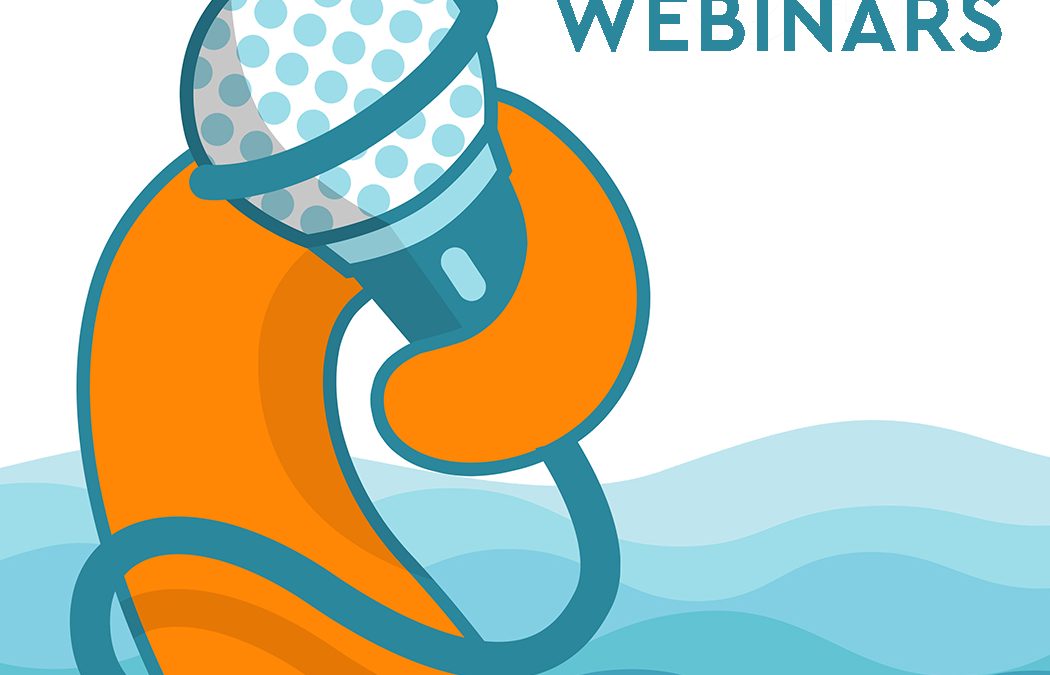
by Sarah Carr, Ph.D. | Mar 2, 2023 | Past Webinars, Webinars
This webinar originally aired on Thursday, March 2, 2023. Presented by: Ben Halpern of the University of California, Santa Barbara. Description: Feeding humanity puts enormous environmental pressure on our planet. These pressures are unequally distributed, yet we have piecemeal knowledge of how they accumulate across marine, freshwater, and terrestrial systems. This webinar will present global geospatial analyses detailing greenhouse gas emissions, freshwater use, habitat disturbance and nutrient pollution generated by 99% of total reported production of aquatic and terrestrial foods in 2017. These results have also been rescaled and combined to map the estimated cumulative pressure, or ‘footprint’, of food production. On land, five countries contribute nearly half of food’s cumulative footprint, and just 10% of the planet contributes 93% of this footprint. The pressures that drive these footprints vary substantially by food and country. Importantly, the cumulative pressure per unit of food production (efficiency) varies spatially for each food type such that rankings of foods by efficiency differ sharply among countries. These disparities provide the foundation for efforts to steer consumption towards lower-impact foods and ultimately the system-wide restructuring essential for sustainably feeding humanity.

by Sarah Carr, Ph.D. | Feb 2, 2023 | Past Webinars, Webinars
This webinar originally aired on Thursday, February 23, 2023. Presented by: Katie Lebling of World Resources Institute. Description: The ocean is already a major carbon sink and plays a crucial role in global climate regulation. At the same time, as the urgency of the climate crisis worsens, attention is turning to the ocean for its potential to play an even bigger role in addressing this. Part of this could be through ocean-based carbon dioxide removal (CDR), which is receiving increasing attention and investment. However, most approaches are still in the early stages of development, have a high degree of uncertainty about their efficacy and impacts, and lack sufficient governance to ensure responsible deployment.
This webinar will present key findings from a recent WRI report on ocean CDR, including a summary of prominent ocean CDR approaches (coastal blue carbon restoration, seaweed cultivation, ocean fertilization, alkalinity enhancement, electrochemical approaches, artificial upwelling, and artificial downwelling), an overview of the governance landscape, and recommendations for a pathway forward that balances the urgent need for emission reductions with a precautionary approach to avoid further harm to ocean systems, ecosystems, and coastal communities.

by Sarah Carr, Ph.D. | Jan 17, 2023 | Past Webinars, Webinars
This webinar originally aired on Tuesday, January 17, 2023. Presented by: Joachim Claudet of the French National Center for Scientific Research. Description: Marine protected areas (MPAs) are increasingly being promoted as an ocean-based climate solution. These claims are controversial, however, because the literature on the climate benefits of MPAs is diffuse and poorly synthesized. To address this knowledge gap, we conducted a systematic literature review of 22,403 publications spanning 241 MPAs and analyzed these across 16 ecological and social pathways through which MPAs could contribute to climate change mitigation and adaptation. Our meta-analysis found that marine conservation can significantly enhance carbon sequestration, coastal protection, biodiversity, and the reproductive capacity of marine organisms as well as fishers’ catch and income. Most of these benefits are only achieved in fully or highly protected areas and increase with MPA age. This webinar will present these results and discuss the extent to which MPAs can be a useful tool for mitigating climate change and adapting social-ecological systems.

by Sarah Carr, Ph.D. | Dec 13, 2022 | Past Webinars, Webinars
This webinar originally aired on Tuesday, December 13, 2022. Panelists: Julie Angus, CEO of Open Ocean Robotics; Emily Charry Tissier, CEO and Founder of WhaleSeeker; and Anna Sanders, Product Development Director for Global Fishing Watch. Description: Existing and emerging ocean technology have tremendous potential for helping global MPAs address critical management needs. In this webinar, experts from three leading ocean technology organizations – Open Ocean Robotics, Whale Seeeker, and Global Fishing Watch – will share how their technology products can help MPAs and address questions from webinar participants. In addition, webinar participants will be encouraged to share their own experiences with ocean tech for MPA management via the webinar chat, enabling knowledge and experience sharing across global MPAs.

by Sarah Carr, Ph.D. | Dec 1, 2022 | Past Webinars
This webinar originally aired on Thursday, December 8, 2022. Presented by: Jeff Young of EDF. Description: Climate change and overfishing are increasingly straining fisheries and the marine ecosystems that support them, putting marine biodiversity, the nutrition of people in coastal communities, and the global food supply at greater risk. To help address these critical issues, EDF’s Fishery Solutions Center has worked closely with hundreds of stakeholders, researchers, and practitioners from around the world to synthesize their collective expertise into user-friendly tools. The resulting Climate-Resilient Fisheries Toolkit features over 30 tools and resources can help assess conditions and prioritize interventions; examine governance gaps, climate impacts, ecosystem threats, and food and nutrition security needs; integrate available data and knowledge into management action; and design and implement fishery solutions. Tools are designed for use by fishers, researchers, managers, NGOs, communities, and local officials and can help make informed fisheries decisions even in limited data situations. This webinar will introduce participants to the tools in the toolkit and invite input on how the toolkit can be strengthened and improved over time.

